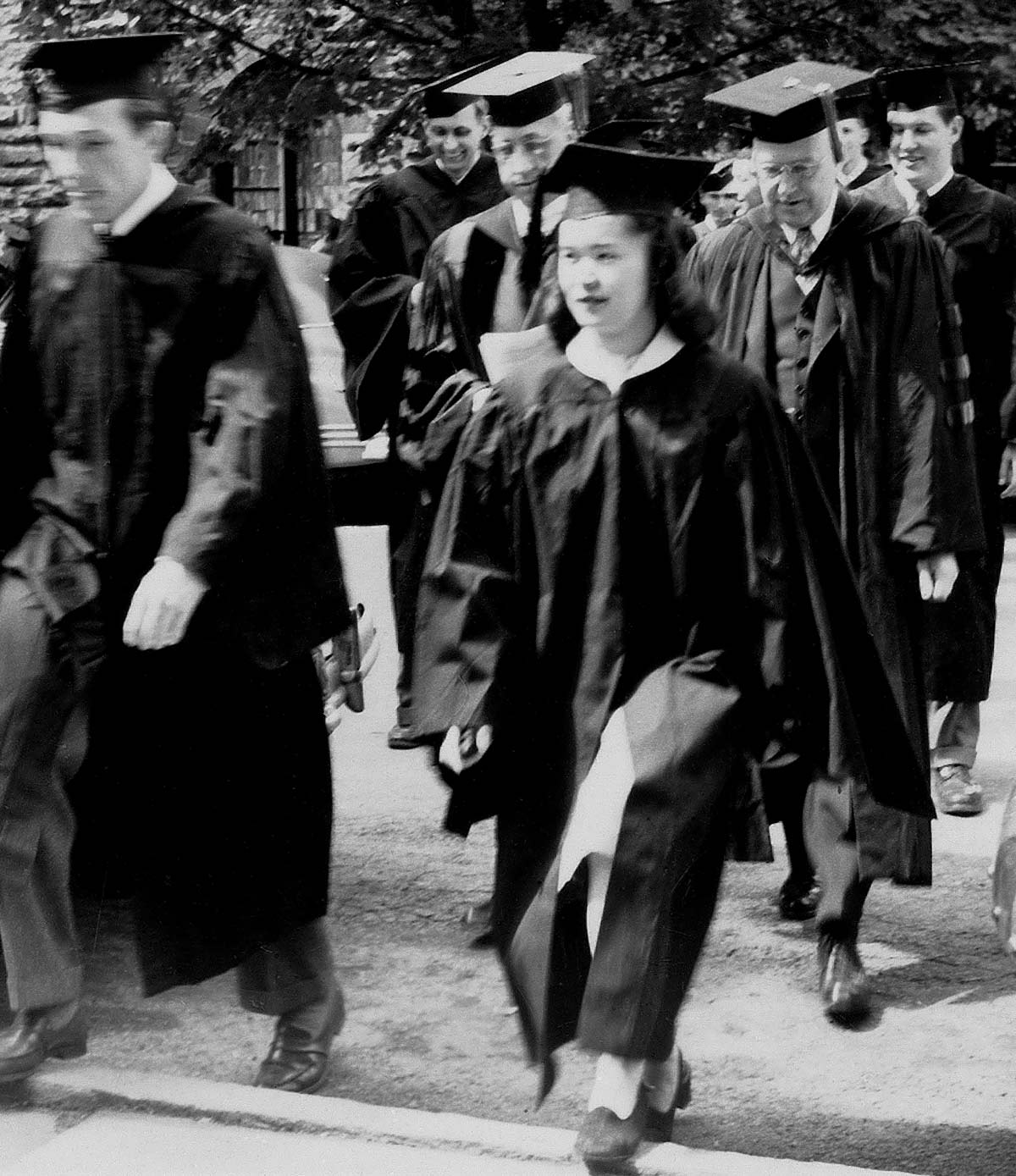Dorothy, who died in 2010, told Midori about her life in the camps and at Bucknell. Whereas Sachiye’s family traveled directly to the Colorado River Relocation Center in Poston when ordered to leave their home, the Sakasegawas “were first removed to the Salinas Rodeo grounds and put in horse stalls,” Midori recounts. “It was kind of like, ‘Wait a minute. We’re staying here?’ ”
Midori says the experience left the Sakasegawas conflicted as Americans. “They wanted to show that they were good, loyal American citizens — be grateful and positive by enduring what was difficult, which is a very Japanese trait.” When she became a teen, Midori pressed her mother about her reaction to incarceration. “She said that you understood that something was not right, but you had to learn to put a good face on it.”
After her mother spent her junior and senior years of high school in the Poston camp, “the opportunity to come to Bucknell was huge for her,” says Midori.
A letter housed in the California State University, Sacramento Archives and Special Collections points to the pivotal nature of her Bucknell experience. Six months after arriving at the University, Dorothy wrote to her high school principal at Poston, “Bucknell is a very ideal college. … I wouldn’t trade Bucknell for anything.” Midori always thought of her mother as a quiet and humble person, so she was surprised to learn from the letter that her mother and Sachiye often spoke about their Poston experiences at Lewisburg churches. Dorothy also wrote in the letter, “By majoring in sociology, I hope to do my share in helping others.”
She made good on that promise right after graduation when she helped with postwar reconstruction in Holland. Back in the states, she became assistant director of the International Student House in Washington, D.C. There she met Karl Tabery, an art student from Vienna, Austria. “It was love,” says her daughter. They were married in 1952 and settled in the Boston area, where they raised Midori, an art teacher, and her brother Kiyo, a retired art director.

“That had a huge impact on me and my brother in understanding that not everybody is like us,” she adds. “That desire to help others started with Bucknell and continued with her experiences after that. Social justice was a constant in our household.”